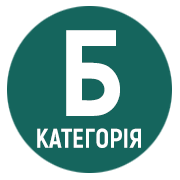The problem of freedom in the dystopian discourse of the novels “Solar machine” by V. Vynnychenko and “Brave new world” by A. Huxsley
DOI:
https://doi.org/10.31494/2412-933Х-2018-1-7-78-86Keywords:
dystopia, discourse, freedom, necessity, mechanization, power, experience.Abstract
The article deals with сommon and specific features of actualization of the concept of „freedom‟ in the dystopian discourse of the novels “Solar Machine” by Volodymyr Vynnychenko and “Brave New World” by Aldous Huxley. The analysis is done in the plane of the conflict between an individual and society which is marked by the dichotomous oppositions of internal / external freedom, freedom / necessity. The above indicated dichotomies are represented in the text by the vertical movement from top to bottom. In such paradigm a personal consciousness appears in all its doom and hopelessness. The last is reinforced in the text of the novels by remoteness (in V. Vynnychenko) or absence (in A. Huxley) of an individual space. It is proved that in the reflections and experiences of the characters who stand out from the crowd, there are articulated the authors‟ ideological concepts. A number of such characters in both novels is limited. They are opposed to the obedient inhabitants who constitute the majority of the totalitarian societies. The nonconformists are quite different characters united by their dissatisfaction with real circumstances. They are aware of the fictitious nature of their existence which can not be associated with freedom and happiness. The experience of a personal tragedy is an important factor of existential awakening of the main personages, and therefore their disclosure of the truth. Their comprehension of freedom resonates with its existentialist understanding as an attribute of every person, hence a necessary condition of existence. High achievements of science and technology as well as material goods are regarded to be a form of man‟s enslavement, remoting a person from himself. However, if Aldous Huxley questions the very dream of the kingdom of free people in a technocratic society, Volodymyr Vynnychenko offers definite, though openly utopian ways to achieve it. In both cases, the very articulation of the problem of freedom stimulates existential search for self-awareness.
References
Баран Г. Роман-пантопія В. Винниченка “Сонячна машина”: проблематика, особливості поетики / Галина Баран. – Дрогобич: Вимір, 2001. – 194 с.
Бердяев Н. Царство духа и царство цесаря / Н. Бердяев. – Париж: YMCA-Press, 1949. – 167 с.
Винниченко В. Сонячна машина / В. Винниченко. – Київ: Дніпро, 1989. – 619 с.
Гакслі О. Прекрасний новий світ. Пер. з англ. С. Макаренка / О. Гакслі // Всесвіт. – 1994. – № 5–6. – С. 64–119.
Гакслі О. Прекрасний новий світ. Пер. з англ. С. Макаренка / О. Гакслі // Всесвіт. – 1994. – № 7. – С. 96–134.
Ланин Б. Анатомия литературной антиутопии / Б. Ланин // Общественные науки и современность. – 1993. – № 5. – С. 154-163.
Сартр Ж.-П. Екзистенціалізм – це гуманізм / Ж.-П. Сартр // Читанка з історії філософії: у 6 кн. / Під ред. Г. І. Волинки. – Київ: Фірма “Довіра”, 1993. – Кн. 6. : Зарубіжна філософія ХХ ст. – С. 131–139.
Хайдеггер М. Що таке метафізика / М. Хайдеггер. Читанка з історії філософії: у 6 кн. / Під ред. Г. І. Волинки. – Київ: Фірма «Довіра», 1993. – Кн. 6. : Зарубіжна філософія ХХ ст. – С. 83–100.
Хаксли О. Предисловие [Електронний ресурс] / О. Хаксли // Олдос Хаксли. О дивный новый мир. Пер. с англ. О.Сороки, В. Бабкова. – СПб.: Амфора, 1999. –541 с. – Режим доступу: http://lib.ru/INOFANT/HAKSLI/mir.txt






